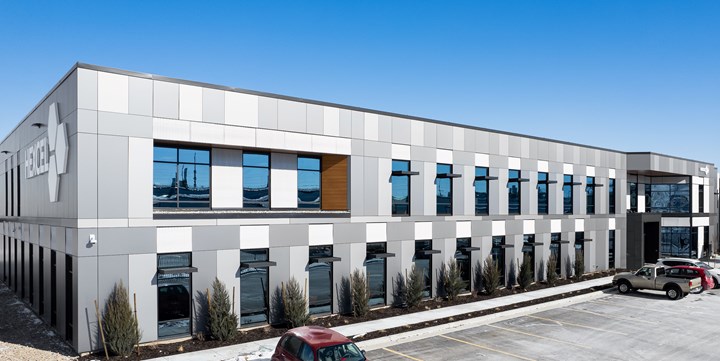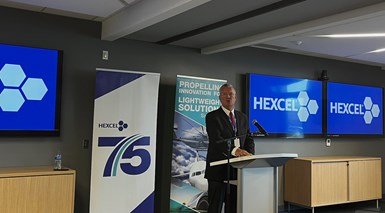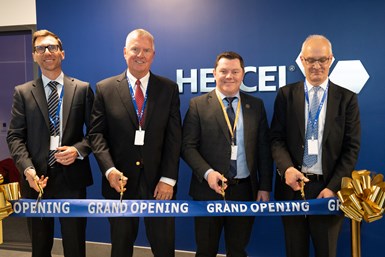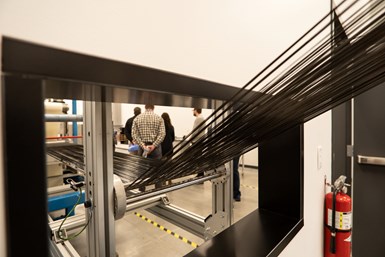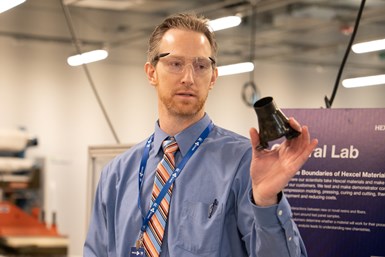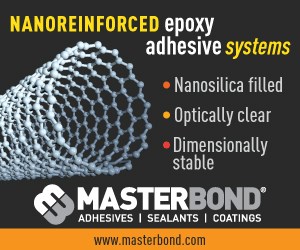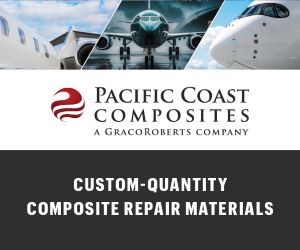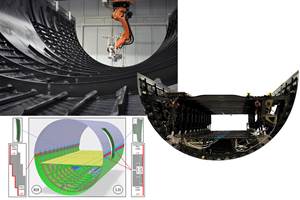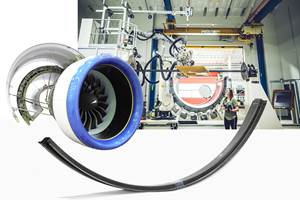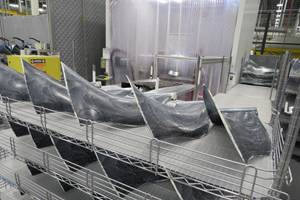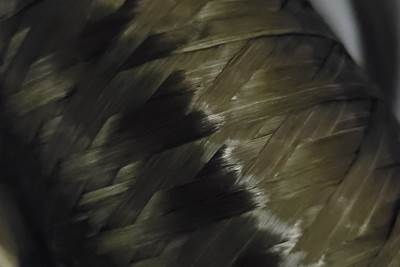Hexcel opens new R&T center in Salt Lake City
Hexcel’s new 100,000-square-foot Center of Research & Technology Excellence at its Salt Lake City, Utah, U.S., campus, will be the focus of the company’s innovation efforts.
Composites materials supplier Hexcel (Stamford, Conn., U.S.), on March 22, hosted a ribbon-cutting event to celebrate the opening of its new Hexcel Center of Research & Technology Excellence at the company’s Salt Lake City, Utah, U.S., campus.
The event, attended by about 150 Hexcel vendors and customers, as well as representatives from the State of Utah governor’s office, featured remarks by Hexcel officials and local political leaders.
Nick Stanage, CEO of Hexcel, noted that the 100,000-square-foot R&T center is designed for foster innovation and creativity to help spur new development across the company’s full line of products, including precursors, carbon fibers, resin systems, prepregs and core materials. The facility is also designed as a collaboration space, to give customers the resources they need to test and qualify composite materials of all types.
“This facility will become quickly a showcase for our world-leading technologies,” Stanage said. “When you build a laboratory like this...you have the opportunity do even greater things.”
Paul Mackenzie, senior VP and CTO of Hexcel, declared that “innovation never stands still, and we expect that this center will become a centerpiece of Hexcel’s creative energy.”
This new facility replaces one Hexcel operated for several years at its Dublin, Calif., U.S., location. Hexcel says several engineers, researchers and technicians relocated from Dublin to Salt Lake City to work in the new center, but that several additional employees have been and will be hired to meet staffing requirements.
From left: Philippe Chevrier, Hexcel Aerospace Americas president; Nick Stanage, Hexcel CEO; Ryan Starks, Utah Governor’s Office; Paul Mackenzie, Hexcel senior VP and CTO. Photo Credit: Hexcel
Following public remarks and the official ribbon-cutting, attendees were led on a tour of the facility, which comprises the General Lab, the Chemical Lab, the Creel Room and Prepreg Lab, the Mechanical Test Lab, the Analytical Lab and the Microscopy Lab.
The General Lab, designed to facilitate process development, features some moldmaking capability, compression molding machines, ovens, 3D printers and other equipment that will allow Hexcel to turn raw materials into finished parts.
The Chemical Lab features resin formulation, prepreg formulation, adhesion testing, liquid molding development and analysis of fiber volume fraction (FVF) in new and developing products. Much of the work here, Hexcel representatives said, is customer-driven.
The Creel Room and Prepreg Lab represents a significant step up in capability for Hexcel. It features one prepreg line, with another to be installed soon. These will allow Hexcel to produce and scale-up new products for internal and customer evaluation, without infringing on production time, which was the model Hexcel had followed previously.
The Mechanical Test Lab provides laminate and coupon fabrication capabilities and features seven mechanical test rigs (Instron and Shimadzu) as well as environmental testing systems that allow for performance of a varity of ASTM composites testing methods.
The Analytical Lab provides a suite of equipment and services for characterizing resins, fibers, prepregs and finished parts. The lab offers customized characterization services and shares such with customers.
Finally, the Microscopy Lab, outfitted with five scopes and a metrology table, provides macro, micro and nano scale optical microscopy capabilities to assess fiber/resin alignment, adhesion and other properties. Like the other labs, services here are also available to customers who need the capability.
Related Content
Manufacturing the MFFD thermoplastic composite fuselage
Demonstrator’s upper, lower shells and assembly prove materials and new processes for lighter, cheaper and more sustainable high-rate future aircraft.
Read MoreThe potential for thermoplastic composite nacelles
Collins Aerospace draws on global team, decades of experience to demonstrate large, curved AFP and welded structures for the next generation of aircraft.
Read MorePlant tour: Albany Engineered Composites, Rochester, N.H., U.S.
Efficient, high-quality, well-controlled composites manufacturing at volume is the mantra for this 3D weaving specialist.
Read MorePlant tour: Joby Aviation, Marina, Calif., U.S.
As the advanced air mobility market begins to take shape, market leader Joby Aviation works to industrialize composites manufacturing for its first-generation, composites-intensive, all-electric air taxi.
Read MoreRead Next
CW’s 2024 Top Shops survey offers new approach to benchmarking
Respondents that complete the survey by April 30, 2024, have the chance to be recognized as an honoree.
Read MoreFrom the CW Archives: The tale of the thermoplastic cryotank
In 2006, guest columnist Bob Hartunian related the story of his efforts two decades prior, while at McDonnell Douglas, to develop a thermoplastic composite crytank for hydrogen storage. He learned a lot of lessons.
Read MoreComposites end markets: Energy (2024)
Composites are used widely in oil/gas, wind and other renewable energy applications. Despite market challenges, growth potential and innovation for composites continue.
Read More




